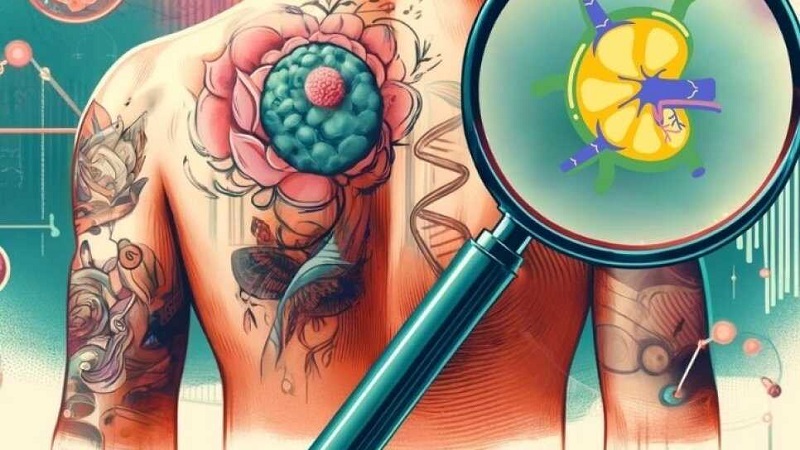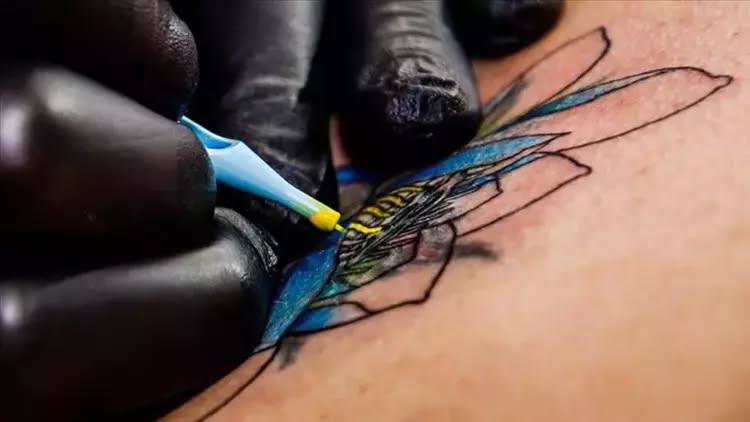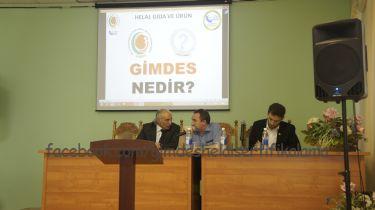Dr. Hüseyin Kâmi BÜYÜKÖZER
Tattoos have recently become increasingly popular, especially among young people; however, scientists who have studied this subject have reported in their scientific reports that there may be medical complications and health risks when getting a tattoo.
Tattoos are a permanent body modification or decoration created by an electric needle dipping ink into our skin. Tattoos are, unfortunately, widely practiced by people of almost every race and country in the world. Tattoos have gained popularity in the last thirty years and are now seen in individuals from a wide range of social classes.
Scientists have determined that people exposed to tattoo ink are more likely to develop lymph and skin cancer compared to people without tattoos.
According to Science Daily, scientists from the University of Southern Denmark and the University of Helsinki in Finland examined the health data of nearly 5,900 siblings to investigate the effects of tattoo ink on the body.
Researchers, who examined studies conducted on twins to minimize genetic differences, revealed that people who had tattoos had a risk of developing skin cancer twice as much as those who had no tattoos.
Researchers, who also examined the relationship between tattoo size and cancer risk, found that people with tattoos “larger than the palm of their hand” had a risk of skin cancer 2.37 times higher than those without tattoos, and a risk of lymphoma 3 times higher.
The researchers stated that small particles in tattoo ink could enter the bloodstream and accumulate in the lymph nodes, straining the immune system and increasing the risk of cancer in the long term.
People have been tattooing various parts of their bodies since ancient times. Today, this tradition continues in some places. While some young people in Europe and America do this as an “ornament”, some frivolous young people in our country imitate them. While the pre-Islamic Arabs used to get tattooed to adorn themselves; they believed that their joints would gain strength by tattooing various shapes and figures on their bodies. Today, this is nothing more than an imitation.
Primitive tattooing is basically done by making small holes side by side on the skin and filling these holes with dyed substances such as soot, kohl, ink, henna, and indigo. In addition, there are those that are done by creating deep slits with a knife or nail, or by applying flammable substances such as gunpowder to the parts to be decorated and burning them.
Modern tattooists use specially manufactured electric tattoo pens and apply local anesthesia to the skin of the person getting the tattoo so that it does not feel pain.
While primitive tattoos are usually blue in color, modern tattoos can be as colorful as a painting because various synthetic dyes are used.
Is it permissible to get a tattoo? Tattooing, which is done by inserting needles into the body and putting colored substances into the holes opened, has been a ignorant custom since ancient times and is harmful to health and is also forbidden by religion.
Divine religions have forbidden tattooing.
Tattooing, which is expressed with the word “veşm” in our religion, was widespread especially among women during the time of the Prophet (pbuh) as an extension of the Age of Ignorance.
Our Prophet (pbuh), who did not approve of changes being made to the natural appearance of the most beautifully created human being, banned tattooing as well as various other practices of this kind; he stated that Allah cursed women who tattooed and had them done. The curse of a person who commits an act by Allah shows that it is forbidden. (See Sahih al-Bukhari 5940, Dress, كتاب اللباس
; Sahih al-Muslim, Libas, 119-120)
The reason why only women are mentioned in the hadith texts on the subject is that, as is the case today, women are the ones who get tattooed the most in Arab society. There is no difference between men and women in terms of the religious ruling on getting a tattoo.
How should a person who has had a tattoo do?
Imam Nawawi says that if it does not harm health, the tattoo should be removed from the body. If the operation to be performed harms the body or leaves an ugly sight behind, it is hoped that the person will repent and be free from his sin.
What should be done in this case is to try to remove it if it can be done with a minor intervention or surgery. If it cannot be removed and if there is no possibility of doing so, it is left that way. Because Allah Almighty does not impose a burden on His servant that he cannot bear, and does not want things that he cannot overcome or do.
Does a tattoo prevent ablution and ghusl?
A tattoo is under the skin. In other words, it is under the outer skin. In ablution and ghusl, it is obligatory to wash the top of the skin, not under it. Since a tattoo is under the skin, its presence anywhere on the body does not prevent ablution and ghusl. By washing it, ablution and ghusl become valid.
In addition, tattooing never prevents praying, performing religious duties, going to the mosque and congregation, and reading the Quran. A person who has committed such a sin asks Allah for forgiveness, repents and prays for forgiveness. And insha’Allah, it will be accepted.






